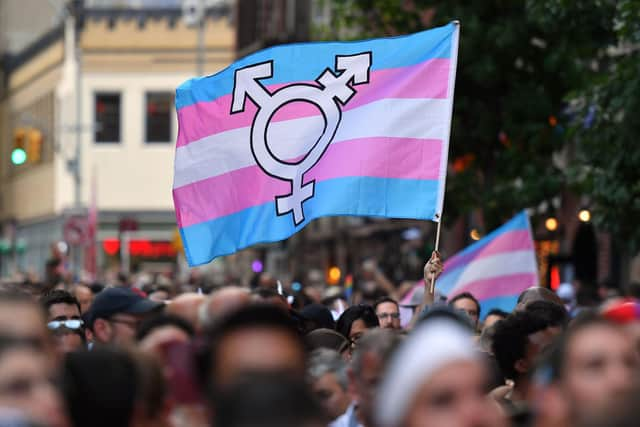Gender Recognition Act: Bid to criminalise misogyny should not affect reform, says lawyer
Baroness Helena Kennedy QC was tasked to develop a report on the Hate Crime and Public Order (Scotland) Act 2021, with a view to either amending the legislation to include sex as an aggravator, or to develop a stand alone offence of misogyny.
Recommending the latter, Baroness Kennedy's findings were published last month, with the recommendation being accepted by First Minister Nicola Sturgeon and a consultation subsequently being launched.
Advertisement
Hide AdAdvertisement
Hide AdBut some claim attempts to reform the Gender Recognition Act in Scotland could impact the implementation of the new offence - something the high-profile human rights lawyer and Labour peer rejects.
The Gender Recognition Reform (Scotland) Bill seeks to remove the requirement for a medical diagnosis for a person to receive a gender recognition certificate, as well as decreasing the length of time a trans person has to live in their acquired gender from two years to three months with an additional three-month reflection period.
"I say, in my introduction to this report, that many people will have seen it as a hospital pass, why was I wanting to get involved in a debate which was going to inevitably involve the great schism that seems to have taken place between many women who have struggled for a very long time for women's rights and the issue of trans rights," she said before Holyrood's Criminal Justice Committee on Wednesday.
"I really do not think this piece of legislation I'm proposing has got anything to do with that - it really hasn't.
"Parliament is making its own decisions and you all as parliamentarians will make your decisions on transgender recognition and how that should be done.


"That was not my job - my job was to deal with the fact that women, over 50% of the population of Scotland, are experiencing this stuff and experiencing it all the time.
"Women have experienced this - we all have as women - and I'm sure that trans women will experience misogyny too as they live out their lives."
Baroness Kennedy went on to say she would not be "lifting people's skirts to see if what their genitalia is like", adding: "Nobody should have to prove that they are a woman in order to bring down this type of protection from abusive behaviour."
Advertisement
Hide AdAdvertisement
Hide AdIn her evidence, the lawyer told MSPs that the implementation of the law should depend on the offence, as opposed to who the victim is.
"If someone is being traduced in the street and shouted at, 'you're not a real woman' then, of course, it would then be falling under the hate crime aggravation to do with transgender," she said.
"But, in other cases, a transgender woman might be experiencing somebody saying, 'I want to come and do whatever to you' and describing in detail what they'd like to do to that person, disregarding and perhaps oblivious to the past history of that woman.
"It would depend on the facts of a case."
During her evidence, Baroness Kennedy said she spoke to female police officers in an "off the record" setting, claiming they feared speaking to her would "make life within their working environment more difficult.
Comments
Want to join the conversation? Please or to comment on this article.